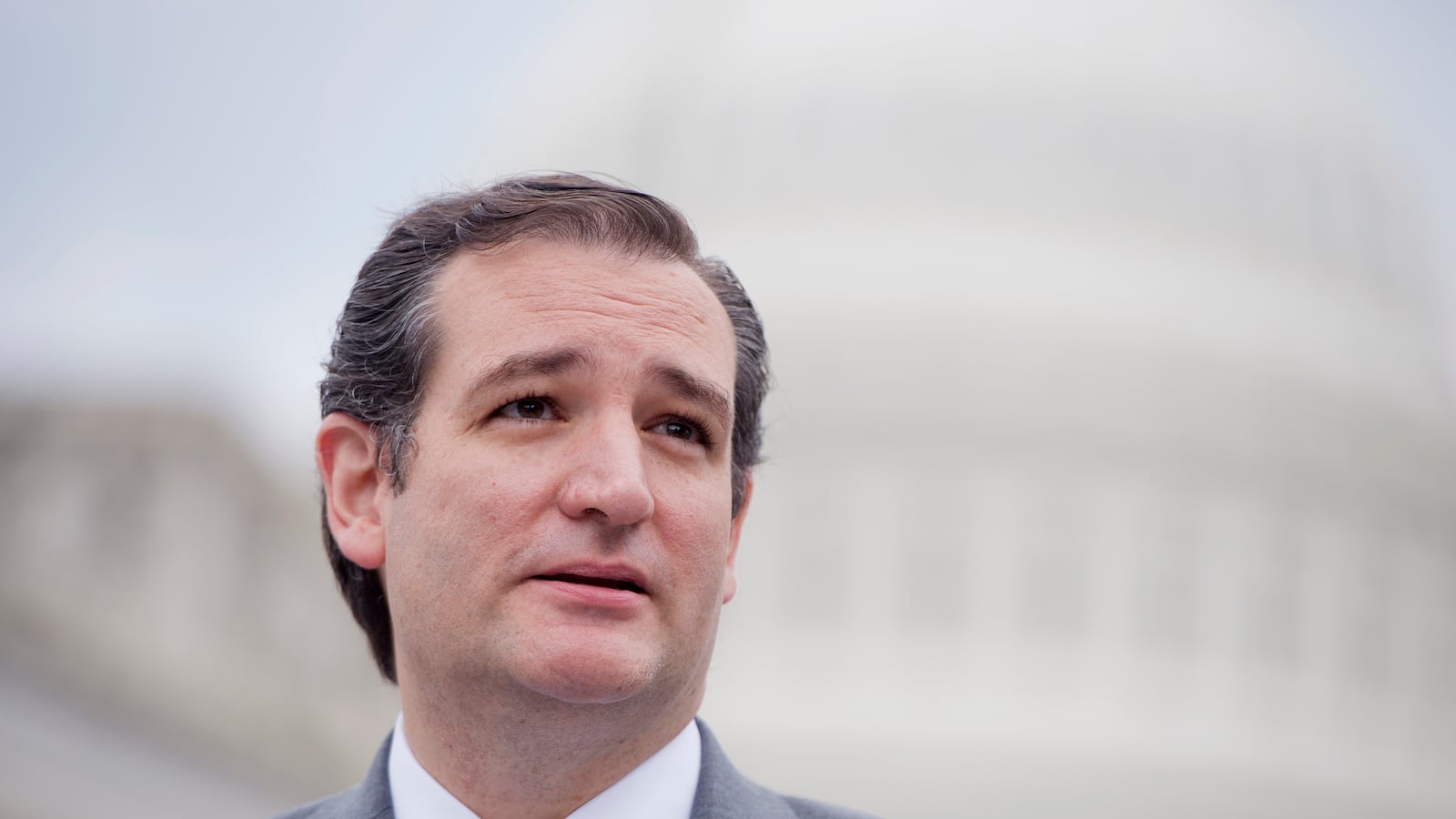
After the government shutdown, a chastened Ted Cruz promised not to work with the Senate Conservative Fund, an outside group which works to defeat incumbent Republican senators. It was the least he could do to win the good graces of his colleagues, after leading the party to a stand-off that tanked its popularity and gave Obama a victory.
Since then, Cruz has been quiet, and the GOP has recovered from the debacle of October, helped—in large part—by the initial problems with the rollout of the Affordable Care Act. He’s even tried to build rapport with other senators, a change of pace for Cruz, who—in his first year—had the attitude of a reality TV star—he wasn’t there to make friends.
But all things must end, and after a moment of silence, Cruz is back to his usual playbook of mercenary tactics and ideological crusading. Not only did he force an unpopular vote on the debt ceiling, angering his colleagues, but—as POLITICO reports—he’s returned to campaigning against his party. This time, by way of the Madison Project, a group that also works to defeat Republican incumbents. Here’s POLITICO with more:
This time, the tea party freshman has helped the lower-profile Madison Project, a political action committee working to defeat McConnell and Sens. Pat Roberts of Kansas and Thad Cochran of Mississippi — and prop up other primary challengers in 2014 midterm races. In the mailer, Cruz asks donors to “pull out all the stops” to elect “solid, principled, conservative fighters” who will “not answer to the party bosses in Washington, D.C.”
Like Jimmy McNulty, Cruz is talented and charismatic, but trapped by his own self-righteousness. He can try to make good on his presidential ambitions, but as long as he continues to spite his co-partisans, it’s hard to see how they go forward.
With that said, it’s worth noting the extent to which Cruz reflects the GOP base. According to recent data from the Pew Research Center, Tea Party Republicans don’t see the GOP as especially conservative, despite its hard right turn—44 percent of Republicans and Republican “leaners” who agree with the Tea Party say that the GOP is conservative or very conservative. Indeed, just 28 percent of Republicans overall say that the party does a good job of “standing up for its traditional positions.”
To outside observers, this is ludicrous. Between its crusade against the Affordable Care Act, its cuts to social services (like food stamps), and its continued push for lower taxes and regulation, the GOP seems as conservative as ever.
But this, it seems, isn’t enough. The conservative base doesn’t want representation as much as it wants to hand defeats to Barack Obama, even if—in the case of the debt ceiling—they cause massive shocks to the global economy.
Which leaves Republican leaders in the same spot they’ve been for years. Beholden to a base that, like a capricious autocrat, will turn against them at the slightest provocation.





